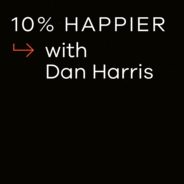Money is often a messy and complicated topic that provokes a lot of anxiety. Today's show is the first episode of a two-part series on managing our relationship to money and understanding what role money really plays when it comes to our happiness. Morgan Housel is the author of The Psychology of Money: Timeless Lessons on Wealth, Greed, and Happiness. Translated into over 50 languages with over two million copies sold, Housel is a two-time winner of the Best in Business Award from the Society of American Business Editors and Writers, winner of the New York Times Sidney Award, and a two-time finalist for the Gerald Loeb Award for Distinguished Business and Financial Journalism. In this conversation we talk about: The difference between happiness and contentment The difference between being rich and being wealthy The elusive but crucial concept of "enough" The importance of not moving the goalposts when it comes to enough-ness Why financial success is more about behavior than intelligence How our lived experiences impact our perspectives on money Full Shownotes: https://www.tenpercent.com/podcast-episode/morgan-housel-543

Gesundheit, Wellness & BeautyLeben & Liebe
10% Happier with Dan Harris Folgen
Self-help for smart people. World-class insights and practices from experts in modern science and ancient wisdom. Hosted by veteran journalist and best-selling author, Dan Harris.
Folgen von 10% Happier with Dan Harris
947 Folgen
-
Folge vom 09.01.2023The Psychology of Money | Morgan Housel
-
Folge vom 06.01.2023The Enlightened Mind | Part 5 of The Dalai Lama's Guide to HappinessWhat is the Dalai Lama's own meditation practice like? In this final episode, the Dalai Lama goes into great detail about the whys and wherefores of meditation, taking us way into the deep end. We cover single-pointed versus analytical meditation, gross and subtle levels of the mind, "true cessation," and how we can use sleep as practice for the moment of death. Dr. Davidson returns to explain key, esoteric terms and to help us understand how we can apply elements of the Dalai Lama's practice to our everyday lives. Want more of The Dalai Lama's Guide to Happiness? Download the Ten Percent Happier app wherever you get your apps. Full Show Notes: https://www.tenpercent.com/podcast-episode/dalai-lama-guide-542 Other Resources Mentioned: Healthy Minds Innovations Thukdam Additional Resources: Download the Ten Percent Happier app today: https://10percenthappier.app.link/JoinChallengePod
-
Folge vom 05.01.2023Is Reincarnation Real? | Part 4 of The Dalai Lama's Guide to HappinessOne of the Dalai Lama's most challenging teachings, especially for secular western minds, is reincarnation. In this episode, His Holiness describes the Buddhist deity who he believes to be his "boss." Dan then sits down with Richie again to discuss whether there is any scientific evidence for rebirth. The episode begins and ends with emotional moments, where members of our team respond with tears to being in the presence of the Dalai Lama. Want more of The Dalai Lama's Guide to Happiness? Download the Ten Percent Happier app wherever you get your apps. Full Show Notes: https://www.tenpercent.com/podcast-episode/dalai-lama-guide-541 Other Resources Mentioned: Healthy Minds Innovations UVA research on reincarnation Additional Resources: Download the Ten Percent Happier app today: https://10percenthappier.app.link/JoinChallengePod
-
Folge vom 04.01.2023Wise Selfishness | Part 3 of The Dalai Lama's Guide to HappinessHow can we get better at selfishness? That's one of many fascinating topics we cover in this episode, in which we play snippets from Dan's one-on-one interview with His Holiness, and then unpack it all with Dr. Richard Davidson, neuroscientist and founder of the Center for Healthy Minds. We talk to His Holiness about "wise selfishness," how to handle our enemies, and whether he ever gets angry. Then Richie recounts a time when His Holiness exhibited a rare flash of anger— towards him, in fact. Want more of The Dalai Lama's Guide to Happiness? Download the Ten Percent Happier app wherever you get your apps. Full Shownotes: https://www.tenpercent.com/podcast-episode/dalai-lama-guide-540 Other Resources Mentioned: Healthy Minds Innovations Additional Resources: Download the Ten Percent Happier app today: https://10percenthappier.app.link/JoinChallengePod
